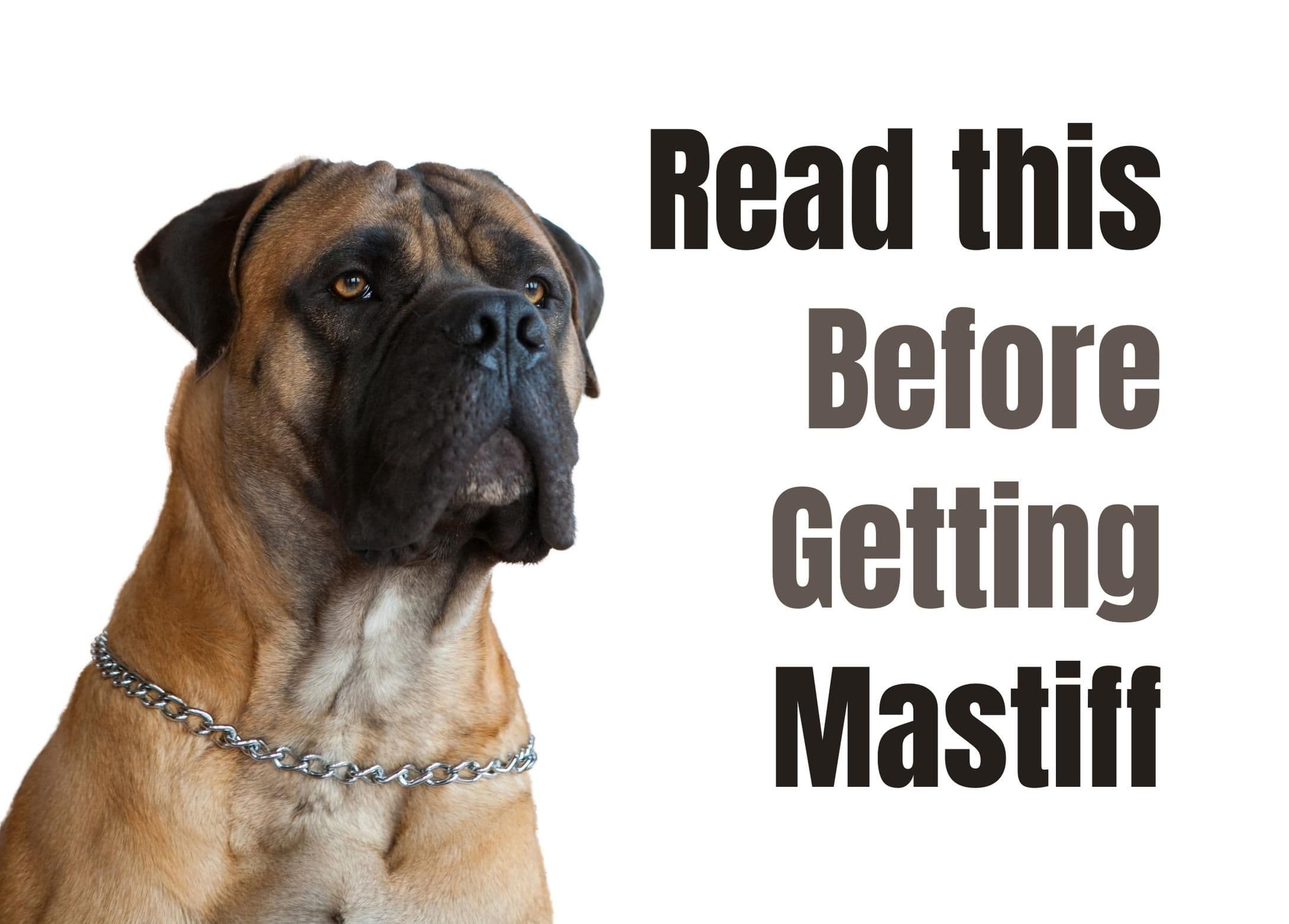Essential Facts to Understand About Mastiffs

Thinking about bringing home a Mastiff? These gentle giants are impressive in every sense — loyal, intelligent, protective, and yes, huge. But they’re not a casual pick for first-time dog parents. Having spent time around large breeds myself, I can tell you: owning a Mastiff isn’t just about loving big dogs — it’s about being prepared for their unique needs, quirks, and responsibilities.
Here’s what you really need to know before bringing an English Mastiff into your life:
1. When we say “Mastiff,” we mean English Mastiff.
There are lots of “mastiff-type” breeds out there (Neapolitan, Tibetan, Bullmastiff, etc.), but when people use the term “Mastiff” alone, they usually mean the English Mastiff — the original, and the largest of them all.
2. These dogs are ancient warriors turned couch potatoes.
English Mastiffs descend from dogs used in ancient Babylon to hunt lions and guard villages. Over the centuries, they’ve gone from battlefield brutes to mellow homebodies — but that protective instinct is still in their DNA. They’re not aggressive by default, but they are natural guardians.
3. They’re absolutely massive.
A full-grown Mastiff can weigh anywhere from 130 to 220 pounds and stand nearly 3 feet at the shoulder. That’s more weight than many adult humans. Before falling for those puppy-dog eyes, make sure you’re ready for:
- A dog bed the size of a loveseat
- A monthly food bill that rivals your grocery budget
- Enough strength to control them on leash
- The space they need — inside and out
Trust me, when a dog this size leans on you for cuddles, you feel it.
4. Puppyhood lasts years.
Mastiffs are slow to mature. They may look grown by 12–18 months, but mentally, they’re still goofy puppies until about 3 years old. Be patient — what feels like stubbornness is often just immaturity.
5. They’re smart — and stubborn.
Mastiffs are working dogs, which means they’re smart enough to learn just about anything. The catch? They’ll do it if they feel like it. You’ll need consistency, patience, and positive reinforcement. Without early training, their sheer size makes them hard (and potentially unsafe) to manage.
6. Socialization is non-negotiable.
Even with great training, a poorly socialized Mastiff can be a problem. They’re naturally wary of strangers, which is great for guarding — but not so great if they see every visitor as a threat. Introduce them to different people, dogs, and environments early and often. A well-socialized Mastiff is a calm, affectionate “gentle giant.” An unsocialized one can be a liability.
7. They don’t need a ton of exercise — but they do need movement.
You don’t need to run marathons with a Mastiff. In fact, their massive frames aren’t built for high-impact activity. But they do need daily walks and a fenced yard to stretch out in. Think of them as your slow-but-steady walking buddy.
8. Health-wise, bigger usually means shorter lifespan.
Like many giant breeds, Mastiffs typically live 6–10 years. They’re prone to several health issues, including:
- Bloat (a life-threatening emergency)
- Joint problems (hip/elbow dysplasia)
- Heart conditions
- Eye disorders
- Certain cancers
If you’re getting a puppy, work with a reputable breeder who screens for these conditions. And stay on top of regular vet care — prevention goes a long way.
9. Grooming is easy — drool, not so much.
Their coats are short and fairly low-maintenance. A weekly brushing usually does the trick. But the drool? Oh, the drool. Mastiffs are notorious for it — especially after eating or drinking. Keep towels handy and embrace the slobber. It’s part of the package.
Final Thoughts
English Mastiffs can be incredible companions — loyal, loving, and surprisingly gentle for their size. But they’re not a good fit for everyone. If you’re ready to commit the time, space, training, and love they need, you’ll be rewarded with a dog that’s more than just a pet — they’re a true family member.
But if you’re unsure about handling a 200-pound dog with strong instincts and a stubborn streak, it’s okay to admire Mastiffs from afar. These dogs deserve homes that understand and respect everything they are.
If you’ve ever lived with a Mastiff, you know: they may be drooly and enormous, but they’ve also got hearts to match their size.
